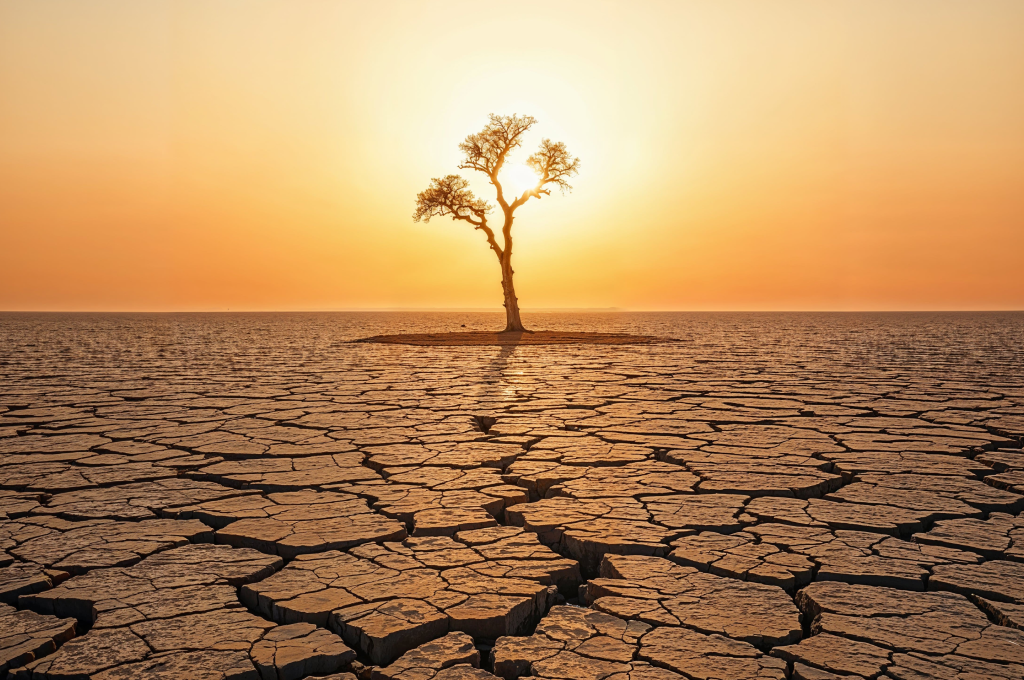
Product walkthrough, trial, POCs, enterprise offering, support and more. Speak with one of our specialists.


Product walkthrough, trial, POCs, enterprise offering, support and more. Speak with one of our specialists.

Policy and industry News

Time is running out. If global carbon emissions continue at the current rate, the world has only three years left before exceeding the 1.5°C safety threshold agreed upon in the Paris Agreement. This is the latest warning from over 60 scientists worldwide, presented in the research report "Indicators of Global Climate Change" published in the journal Earth System Science Data.
The year 2024 is recorded as having the highest global surface temperature in history—1.52°C above pre-industrial levels. Of that, 1.36°C is definitively caused by human activity—primarily fossil fuel combustion and deforestation. Even more concerning: the current rate of warming is 0.27°C per decade, much faster than during the 1970s–1980s. This means we are accelerating the pace of warming toward the crisis threshold. “Temperatures have continued to rise year after year since the last IPCC report in 2021. Current climate policies are not fast enough,” said lead author and Director of the Priestley Centre for Climate Futures, Prof. Piers Forster, in a press release from the Priestley Centre for Climate Futures, University of Leeds.
At the beginning of 2020, we still had a "carbon budget" of 500 billion tons of CO₂ to stay on the 1.5°C pathway. But by early 2025, the remaining budget is only 130 billion tons. With global emissions still hovering around 40 billion tons of CO₂ per year, this budget will be exhausted in just three years. This is not just a number. Once the carbon budget is gone, we enter a phase of warming that will be extremely difficult to reverse—even with carbon capture technology.
The report is filled with striking statistics, highlighting the massive scale of climate change that has already occurred.
Perhaps most notable is the rate at which excess heat is accumulating in Earth’s climate system, a phenomenon known scientifically as Earth’s “energy imbalance.”
Over the past decade, this rate of warming has more than doubled compared to the 1970s and 1980s and is estimated to be 25% higher than during the late 2000s and 2010s.
“That’s a very large number, deeply concerning over such a short timescale,” said Dr. Matthew Palmer of the UK Met Office, also a professor at the University of Bristol.
Some key climate facts:
• Sea levels rose by 26 mm in just the past five years—double the long-term trend since the early 20th century.
• The ocean has absorbed 91% of the excess heat caused by greenhouse gas emissions, worsening storms, coral bleaching, and marine ecosystem damage.
• Extreme heat over land continues to break records, with average maximum temperatures reaching 1.9°C between 2015–2024.
Despite the grim outlook, the report also notes a positive signal: emission growth is starting to slow, driven by the transition to clean energy. But slowing alone is not enough—the world must cut emissions drastically and urgently.
“Every fraction of a degree of warming we can avoid means less suffering for vulnerable communities and less damage to nature,” said Prof. Joeri Rogelj from Imperial College London.
The 1.5°C figure is not just symbolic. Exceeding it means:
• More frequent and extreme heatwaves.
• Widespread coastal flooding and erosion.
• Greater threats to food and water security.
• Irreversible loss of biodiversity.
Every small increase in temperature worsens these impacts. That’s why the actions we take today are crucial for the future.
This report is a stark reminder that the climate crisis is not a future issue—it is happening now. We have just three years to avoid a tipping point. But we can still change course—with real commitment, a clean energy transition, and political courage.
It’s time to stop delaying. Starting now, let’s reduce our carbon footprint and begin living more sustainably.






















Jejakin’s green programs combine high-tech monitoring, biodiversity restoration, and community-led initiatives to deliver powerful, sustainable change across ecosystems.








